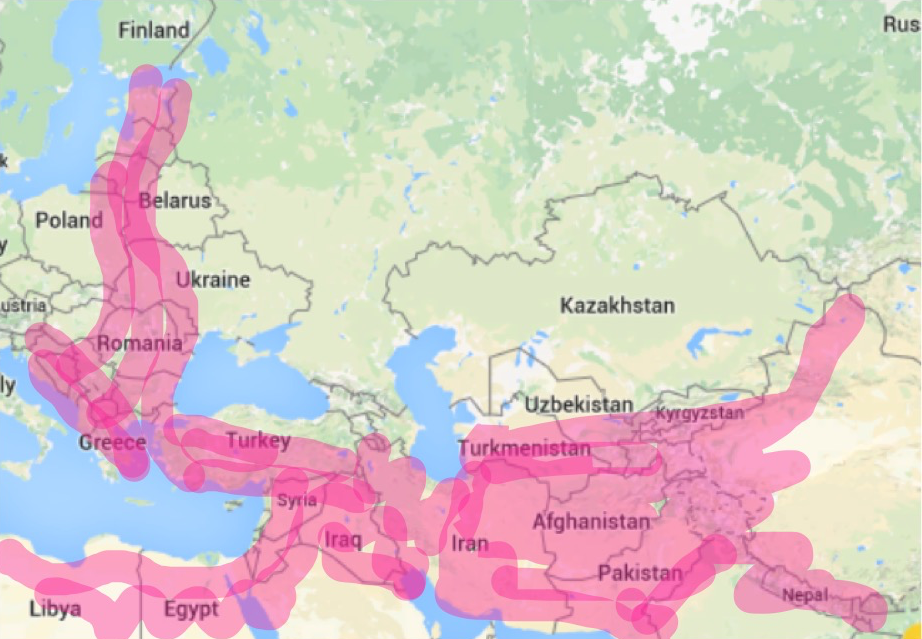Memorial Day is for remembrance and for speeches. I’ll let you in on a secret. I already know what will be said in those speeches. They will follow — as every memorial day speech has followed — the basic outline established by Pericles in his famous Funeral Oration delivered in the 5th century while Athens was at war. The speech has everything — reflection on long dead heroes, credit for what Athens has become, praise of the ongoing mission of Athens in the Peloponnese, heartfelt gratitude to the families of the war dead, and, most importantly, a call to make sure that they did not die in vain. That is to say, a call for these families to keep up their supply of children to fill the ranks of the soon-to-be heroes. And, yes, there is also much in the speech not only praising the peaceful mission of Athens in the world, but also condemning those who criticize that mission: war resisters, pacifists, critics of Athens and of Pericles. Its all right there, in Thucydides’ Peloponnesian War. And there has not been a President who has not read, re-read, and read again Pericles’ address before delivering their own.
I read Pericles’ Funeral Oration every Memorial Day. And then I go on to read about the plague, growing resistence to Pericles’ imperial policies, and Pericles’ response to this policies, which I quote here:
60 ‘I expected this outbreak of anger on your part against me, since I understand the reasons for it; and I have called an assembly with this object in view, to remind you of your previous resolutions and to put forward my own case against you, if we find that there is anything unreasonable in your anger against me and in your giving way to your misfortunes. My own opinion is that when the whole state is on the right course it is a better thing for each separate individual than when private interests are satisfied but the state as a whole is going downhill. However well off a man may be in his private life, he will still be involved in the general ruin if his country is destroyed; whereas, so long as the state itself is secure, individuals have a much greater chance of recovering from their private misfortunes. Therefore, since a state can support individuals in their suffering, but no one person by himself can bear the load that rests upon the state, is it not right for us all to rally to her defence? Is it not wrong to act as you are doing now? For you have been so dismayed by disaster in your homes that you are losing your grip on the common safety; you are attacking me for having spoken in favour of war and yourselves for having voted for it. ‘So far as I am concerned, if you are angry with me you are angry with one who has, I think, at least as much ability as anyone else to see what ought to be done and to explain what he sees, one who loves his city and one who is above being influenced by money. A man who has the knowledge but lacks the power clearly to express it is no better off than if he never had any ideas at all. A man who has both these qualities, but lacks patriotism, could scarcely speak for his own people as he should. And even if he is patriotic as well, but not able to resist a bribe, then this one fault will expose everything to the risk of being bought and sold. So that if at the time when you took my advice and went to war you considered that my record with regard to these qualities was even slightly better than that of others, then now surely it is quite unreasonable for me to be accused of having done wrong.
61 ‘If one has a free choice and can live undisturbed, it is sheer folly to go to war. But suppose the choice was forced upon one – submission and immediate slavery or danger with the hope of survival: then I prefer the man who stands up to danger rather than the one who runs away from it. As for me, I am the same as I was, and do not alter; it is you who have changed. What has happened is this: you took my advice when you were still untouched by misfortune, and repented of your action when things went badly with you; it is because your own resolution is weak that my policy appears to you to be mistaken. It is a policy which entails suffering, and each one of you already knows what this suffering is; but its ultimate benefits are still far away and not yet clear for all to see. So, now that a great and sudden disaster has fallen on you, you have weakened in carrying out to the end the resolves which you made. When things happen suddenly, unexpectedly, and against all calculation, it takes the heart out of a man; and this certainly has happened to you, with the plague coming on top of everything else. Yet you must remember that you are citizens of a great city and that you were brought up in a way of life suited to her greatness; you must therefore be willing to face the greatest disasters and be determined never to sacrifice the glory that is yours. We all look with distaste on people who arrogantly pretend to a reputation to which they are not entitled; but equally to be condemned are those who, through lack of moral fibre, fail to live up to the reputation which is theirs already. Each of you, therefore, must try to stifle his own particular sorrow as he joins with the rest in working for the safety of us all. 62 ‘And if you think that our war-time sufferings may grow greater and greater and still not bring us any nearer to victory, you ought to be satisfied with the arguments which I have often used on other occasions to show that there is no good reason for such fears. But there is this point also which I shall mention. In thinking of the greatness of your empire there is one advantage you have which, I think, you have never yet taken into consideration, nor have I mentioned it in my previous speeches. Indeed, since it sounds almost like boasting, I should not be making use of this argument now if it were not for the fact that I see that you are suffering from an unreasonable feeling of discouragement. Now, what you think is that your empire consists simply of your allies: but I have something else to tell you. The whole world before our eyes can be divided into two parts, the land and the sea, each of which is valuable and useful to man. Of the whole of one of these parts you are in control – not only of the area at present in your power, but elsewhere too, if you want to go further. . . .
63 ‘Then it is right and proper for you to support the imperial dignity of Athens. This is something in which you all take pride, and you cannot continue to enjoy the privileges unless you also shoulder the burdens of empire. And do not imagine that what we are fighting for is simply the question of freedom or slavery: there is also involved the loss of our empire and the dangers arising from the hatred which we have incurred in administering it. Nor is it any longer possible for you to give up this empire, though there may be some people who in a mood of sudden panic and in a spirit of political apathy actually think that this would be a fine and noble thing to do. Your empire is now like a tyranny: it may have been wrong to take it; it is certainly dangerous to let it go.
I always read Pericles’ Funeral Address. But I also read the follow-up. Chilling.



